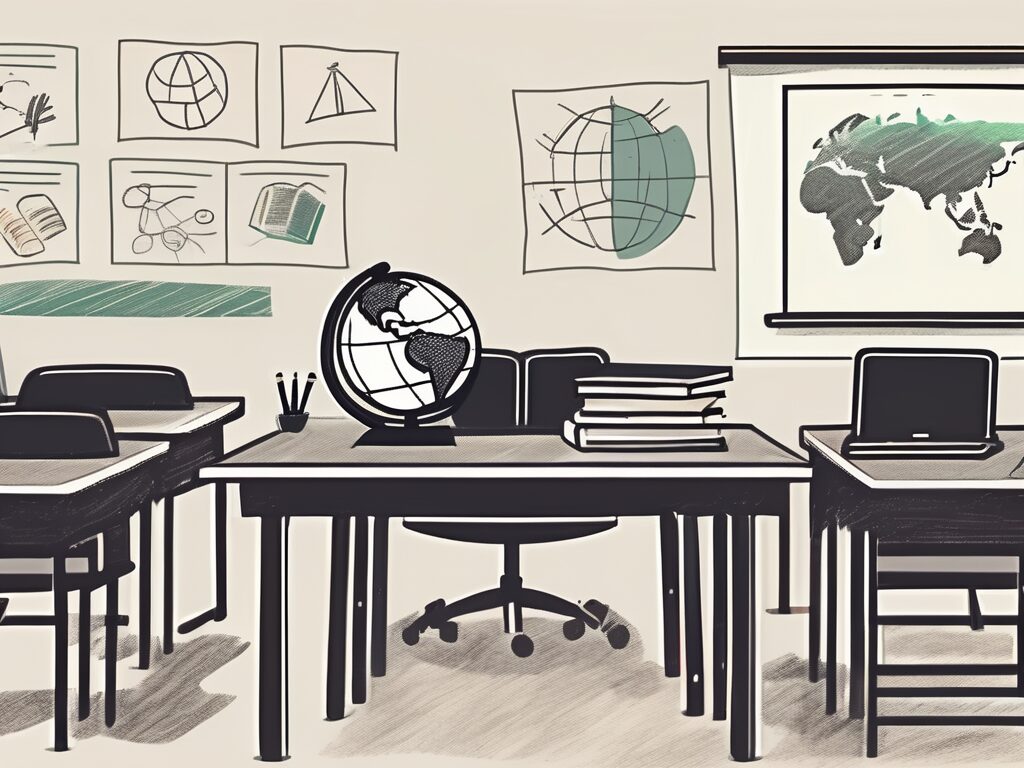html
Master’s in Education: 5 Effective Curriculum Development Strategies in Dubai
In the rapidly evolving educational landscape of Dubai, the demand for innovative and effective curriculum development strategies has never been more critical. As educators and institutions strive to meet the diverse needs of students, understanding how to design and implement a robust curriculum is essential. This blog post will explore five effective curriculum development strategies that can enhance educational outcomes in Dubai, providing educators with actionable insights to elevate their teaching practices.
Understanding the Importance of Curriculum Development
Curriculum development is the backbone of any educational system. It involves the systematic planning, implementation, and evaluation of educational programs. In Dubai, where multiculturalism and a variety of educational standards coexist, developing a curriculum that is both inclusive and effective is paramount. A well-structured curriculum not only enhances student engagement but also ensures that learning objectives are met, preparing students for future challenges.
1. Emphasising Cultural Relevance in Curriculum Design
Dubai is a melting pot of cultures, and this diversity should be reflected in the curriculum. By incorporating culturally relevant materials and perspectives, educators can create a more engaging learning environment. This strategy not only fosters inclusivity but also helps students connect their learning to their own experiences.
For example, integrating local history, literature, and art into the curriculum can enhance students’ understanding of their surroundings. Schools can collaborate with local artists and historians to develop projects that celebrate Dubai’s rich heritage, making learning more relatable and impactful.
2. Implementing Technology-Enhanced Learning
In today’s digital age, technology plays a crucial role in education. Implementing technology-enhanced learning strategies can significantly improve curriculum delivery and student engagement. This includes using interactive tools, online resources, and educational software that cater to various learning styles.
For instance, incorporating platforms like Google Classroom or Microsoft Teams can facilitate collaboration among students and teachers, allowing for a more dynamic learning experience. Additionally, using educational apps that promote gamified learning can motivate students and make complex subjects more accessible.
3. Fostering Collaborative Learning Environments
Collaboration is key to effective learning. By fostering collaborative learning environments, educators can encourage students to work together, share ideas, and learn from one another. This approach not only enhances critical thinking skills but also prepares students for real-world scenarios where teamwork is essential.
Schools in Dubai can implement project-based learning (PBL) initiatives, where students work in groups to solve real-life problems. For example, a project on sustainable living could involve students researching local environmental issues and proposing solutions, thereby applying their knowledge in a practical context.
4. Continuous Professional Development for Educators
To implement effective curriculum development strategies, educators must engage in continuous professional development. This ensures that teachers are equipped with the latest pedagogical skills and knowledge to adapt to changing educational demands.
Institutions in Dubai can offer workshops, seminars, and online courses focusing on innovative teaching methods, curriculum design, and assessment strategies. By investing in their educators, schools can create a culture of excellence that ultimately benefits students.
5. Regular Assessment and Feedback Mechanisms
Regular assessment and feedback are vital components of curriculum development. They provide insights into student progress and highlight areas for improvement. By implementing formative assessments, educators can gauge student understanding and adjust their teaching strategies accordingly.
In Dubai, schools can adopt a variety of assessment methods, including peer assessments, self-assessments, and digital portfolios. This not only empowers students to take ownership of their learning but also fosters a growth mindset, encouraging them to strive for continuous improvement.
Conclusion
In conclusion, effective curriculum development strategies are essential for enhancing educational outcomes in Dubai. By emphasising cultural relevance, implementing technology, fostering collaboration, investing in professional development, and establishing robust assessment mechanisms, educators can create a dynamic and inclusive learning environment. These strategies not only benefit students but also contribute to the overall advancement of the educational landscape in Dubai.
Empower Your Teaching Career with IPGCE
As we strive for a more inclusive education system in Malaysia, the role of qualified and well-trained educators becomes increasingly crucial. IPGCE is dedicated to supporting teachers in their professional journey, offering the International Postgraduate Certificate in Education (iPGCE) to enhance qualifications and open doors to international teaching opportunities. With our program, you can expect a significant increase in interview callbacks, promotion rates, and salary. Plus, you’ll join a global network of educators, gain a deeper understanding of international curricula, and enjoy the flexibility of online study. Don’t let inadequate credentials or isolation hold you back. Join the UK’s #1 Teacher Training Course today and take a decisive step towards a fulfilling career in inclusive education.
Related Topics
- Curriculum Development in International Education
- The Role of Technology in Modern Education
- Importance of Professional Development for Teachers
Connect with us on LinkedIn to stay updated on the latest in education and curriculum development!

